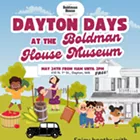"More than anything, the move has been a reality check," explains Walters. The reality is that bigger cities like Seattle do not necessarily stack the chips in favor of the artist. Even worse, in Locke's case, the bigger setting did little more than provide cutthroat odds that require relentless effort to overcome.
Walters seems optimistic and excited about the work ahead of him but the punch line of the conversation was clear: Seattle's hip-hop community has not been nearly as welcoming as the indie crowd that embraced Spokane transplants, Ice Age Cobra and Velella Velella with open arms.
"Maybe hip-hop scenes, by nature, just create a certain level of competitiveness," Walters speculates. Whatever the reason, everything from getting noticed to booking gigs has proved tricky for him. Since moving, he's only played four or five shows on the west side.
While Locke's relocation has opened his eyes to a much more concentrated market of hip-hop emcees, it's done little to reshape his goals as a mic-wielder. "I would assume that anyone's 'goal' in music is to be able to continue working with their music, growing, and I am still doing that," explains Walters. Whether or not Sea-Town is cramping his style, though, is another question.
His performance Friday with Missoula emcee James Two and local vet DJ Parafyn didn't pack the bombastic oomph that used to regularly grace the stages of the B-Side (now The Spread) and Mootsy's. In Locke's 509 salad days he performed with The Chris Wilson Five, an especially tight Tower of Power-esque funk band. The result was a rare, dynamic breed of live hip-hop that appealed to everyone from underground rappers to punks to indie snobs.
His nearly universal appeal seems to have become less so since substituting The C-Dub Five with a DJ and a laptop. If Locke wants to restore that edge of originality he will have to dig deeper than what was a rather run-of-the-mill live hip-hop experience. If not, it's going to be tough feeding in the competitive rap waters of Seattle.















